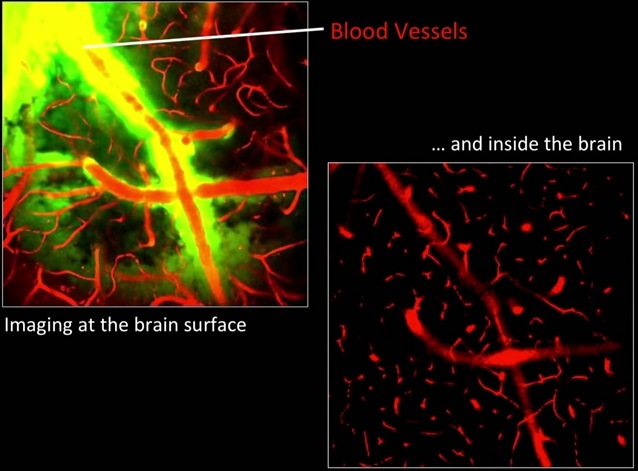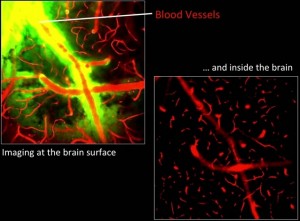Sleeping Helps Clear Brain Waste and Avoid Neurodiseases

 Sleeping properly may help prevent neurodegenerative diseases like Alzheimer’s disease, as it is during sleep that the brain cleanses its system of the “waste” it produces, as explained by Jeff Iliff, who led a University of Rochester Medical Center research team at a recent TEDMED conference, in San Francisco. The researcher was able to unveil the brain cleansing system, which works similarly to the lymphatic system, which does not exist in the brain.
Sleeping properly may help prevent neurodegenerative diseases like Alzheimer’s disease, as it is during sleep that the brain cleanses its system of the “waste” it produces, as explained by Jeff Iliff, who led a University of Rochester Medical Center research team at a recent TEDMED conference, in San Francisco. The researcher was able to unveil the brain cleansing system, which works similarly to the lymphatic system, which does not exist in the brain.
“We all know, based on our experience that sleep clears your mind, and when you don’t sleep it leaves your mind murky. But we still haven’t understood why sleep has this incredible restorer function for the mind,” said Iliff, who is an Assistant Professor of Anesthesiology and Perioperative Medicine at Oregon Health & Science University. “We found that sleep may actually be a kind of elegant solution to some of the brain’s most basic needs. The first problem that all of the organs must have a continuous supply of nutrients that fuel all cells of the body, and in the brain that is especially critical. Its intense electrical activity uses a quarter of the body entire energy supply, even though the brain accounts of only two percent of the body’s mass.”
All of the organs of the body need to find a way of disposing the nutrient waste that is naturally created, as a byproduct. Therefore, the circulatory system solves the nutrient supply problem by sending the blood vessels to supply nutrients and oxygen to all parts of the human body. “Just as every cell requires nutrients and oxygen to fuel it, every cell also produces waste as a byproduct. And the clearance of that waste is the second basic problem that each organ has to solve,” he added. However, the brain has no lymphatic vessels, the system responsible for the clearance of toxins from other organs, which means that the approach that the rest of the body uses to dispose of waste won’t work in the brain.
“What we found was that the brain’s solution to the problem of waste clearance was really unexpected. It was ingenious. But it was also beautiful. The brain has these large pools of clean, clear fluid, called cerebrospinal fluid (CSF). The CSF fills the space that surrounds the brain, in ways from inside the brain, it makes their way out of the CSF, which gets dumped along with the waste into the blood,” Iliff explained about his research conducted on mice and using breakthrough imaging techniques.
Even though it is seems similar to the lymphatic system, this process of clearance has a specialized network of plumbing that  organizes and facilitates the process, meaning that the fluid does not leak arbitrarily into the CSF. It is rather a complex process, which the researcher was able to demonstrate using imaging results in his presentation. “This is a solution that is entirely unique to the brain. But our most surprising finding was that all of this process, it’s only happening on a sleeping brain,” he said.
organizes and facilitates the process, meaning that the fluid does not leak arbitrarily into the CSF. It is rather a complex process, which the researcher was able to demonstrate using imaging results in his presentation. “This is a solution that is entirely unique to the brain. But our most surprising finding was that all of this process, it’s only happening on a sleeping brain,” he said.
What Iliff also emphasis is the type of waste that is disposed by the brain, which is comprised of amyloid-beta, a protein that is produced by the brain constantly and is closely related to the development of Alzheimer’s disease, as it aggregates in spaces between the brain cells, creating plaques and causing degeneration. With this new discovery that amyloid-beta clearance is faster and more efficient in the sleeping brain, the researcher believes that sleeping may become more important, altering the way in which physicians and researchers consider Alzheimer’s, amyloid-beta, and sleep.
“It’s important to point out that these studies don’t prove that lack of sleep or poor sleep cause Alzheimer’s disease, they do suggest that the failure of the brain to keep its house clean by clearing away waste like amyloid-beta, may contribute to the development of disorders like Alzheimer’s,” Iliff concluded. “When it comes to cleaning the brain, there is the very health and function of the mind and the body that is at stake, which is why understanding these very basic house keeping functions of the brain today may be critical to preventing and treating diseases of the mind tomorrow.”






